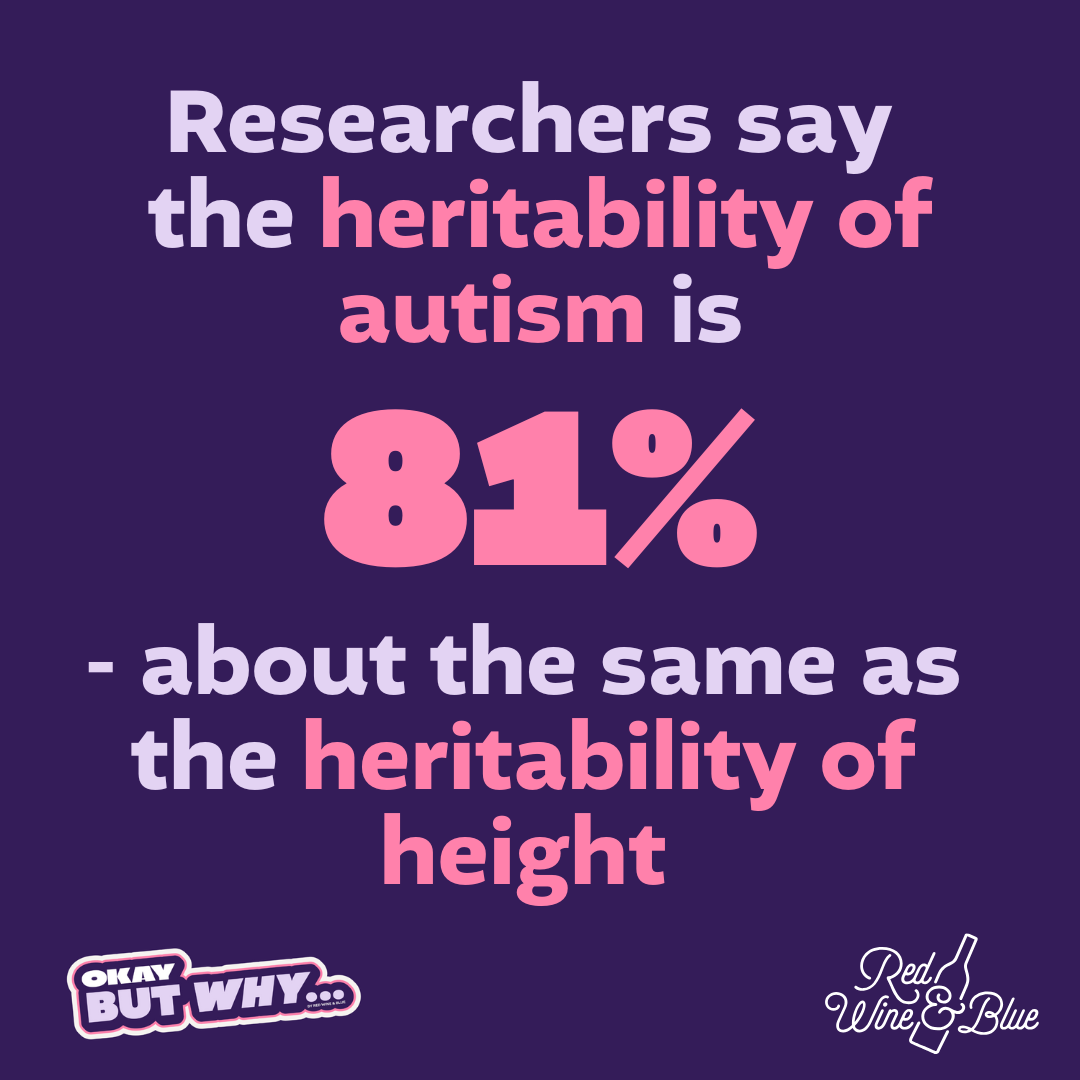
Okay, But Why is Autism in the Headlines?
Autism Spectrum Disorder, or ASD, is a neurodevelopmental condition that’s characterized by a few common factors: difficulties with social interaction or communication, sensitivities to sensory info like sounds or smells, and having really specific interests or repetitive behaviors.
When many people hear the word “autism,” they think of someone who’s significantly disabled – like Dustin Hoffman’s character in Rain Man. But there’s a huge range of struggles and strengths across the 7 million Americans who have it. Stereotypes about autistic people have led to confusion and harm, from what parents expect from their autistic child to what strangers expect from an autistic adult.
Around 25% of people with autism don’t speak, but “nonverbal” and “non-communicating” are not the same thing. Many nonverbal autistic people use other types of communication like writing, gestures, high-tech communication devices, or through art or music. Meanwhile, a large percentage of people are able to “mask” their autism in public, but that can lead to depression, anxiety, and even losing their sense of self.
There are some medical risks associated with autism, like issues with sleeping or eating, as well as differences in learning styles. But it isn’t a disease or an illness. Many people with autism say they love the way their mind works and they wouldn’t want a “cure,” even if such a thing existed.
Recently the US Secretary of Health, RFK Jr, made false statements about autism, like people with autism are broken. But that’s not true. I have autism, and I’m not broken. I want everyone to know that people with autism and other disabilities are not tragedies, but just different, like all people.
What Causes Autism?
Despite Secretary of Health and Human Services, Robert F. Kennedy, Jr.’s comments to the contrary, we don’t really know what causes autism. Most doctors believe that autism is caused by genetics. Kids with a sibling or parent who’s autistic are more likely to be diagnosed themselves. A study published in 2019 estimated the heritability of autism at about 80%.

Secretary of Health and Human Services, Robert F. Kennedy Jr., says he wants to find the cause(s) of autism, but he’s cut more than 50 federal research projects on the disorder, firing scientists who have been working on it for years.
Recently, Kennedy and President Trump suggested that the use of acetaminophen, commonly known as Tylenol, is potentially linked to autism, but most scientists and doctors disagree. The American Academy of Pediatrics and the American College of Obstetricians and Gynecologists both responded by reasserting that Tylenol is safe for pregnant mothers and children. A huge study of almost 200,000 children published just last year in the Journal of the American Medical Association showed no increased risk of autism based on moms taking Tylenol while pregnant.
We also know that vaccines do not cause autism. Scientists have studied this for decades and have found absolutely zero connection between vaccines and autism. The debunked claim originated from a single paper by a British doctor in 1998, but the paper had so many problems that it was soon retracted. He only used a sample size of 12 kids, as opposed to the millions of patients who have been studied since then, and included faulty scientific practices.
It’s understandable why some parents are drawn to health disinformation. Parenting is hard and we’re desperate for any information that could help us raise happy, healthy kids. But the disinformation around Tylenol and vaccines is putting our kids at greater risk.
Why are Cases of Autism Increasing?
According to the CDC, about 1 in 31 kids are now diagnosed with autism, up from 1 in 150 in the year 2000. This increase is because we’re getting more sophisticated in diagnosing it. Most of the rise in cases of autism are in kids and adults who, even just 20 years ago, would never have talked to a doctor about autism in the first place, because the diagnostic criteria expanded. Parents and teachers are also more on the lookout for signs of autism when 20 years ago, a kid might’ve been simply called “difficult” or “shy.”
There’s especially been a rise in women who are getting diagnosed with autism later in life, because until recently, doctors didn’t realize that it often presents differently depending on gender. Autism is diagnosed based on behavior, and autistic girls often struggle more internally than externally. They’re more likely to develop anxiety or depression, and their response may look like shyness — which our society finds more acceptable in girls than in boys.
It’s a good thing that more kids and adults are getting diagnosed with autism. It means they can get the support they need. This can include speech therapy, special communication devices, extra time on tests at school, or just better insight for autistic people into how their own mind works.
We agree it’s important to find the causes of autism and the best ways to support autistic kids and adults, but it should be determined by scientists and medical professionals, not politicians!
